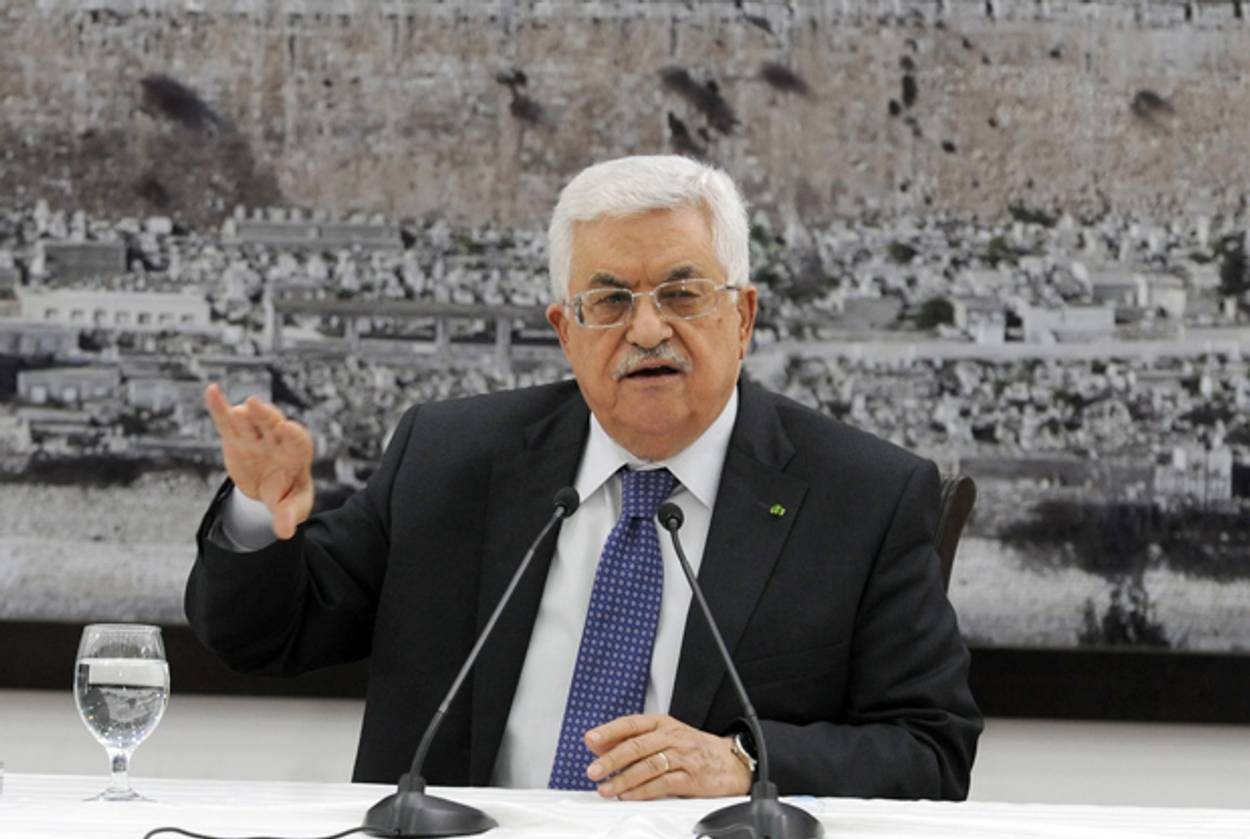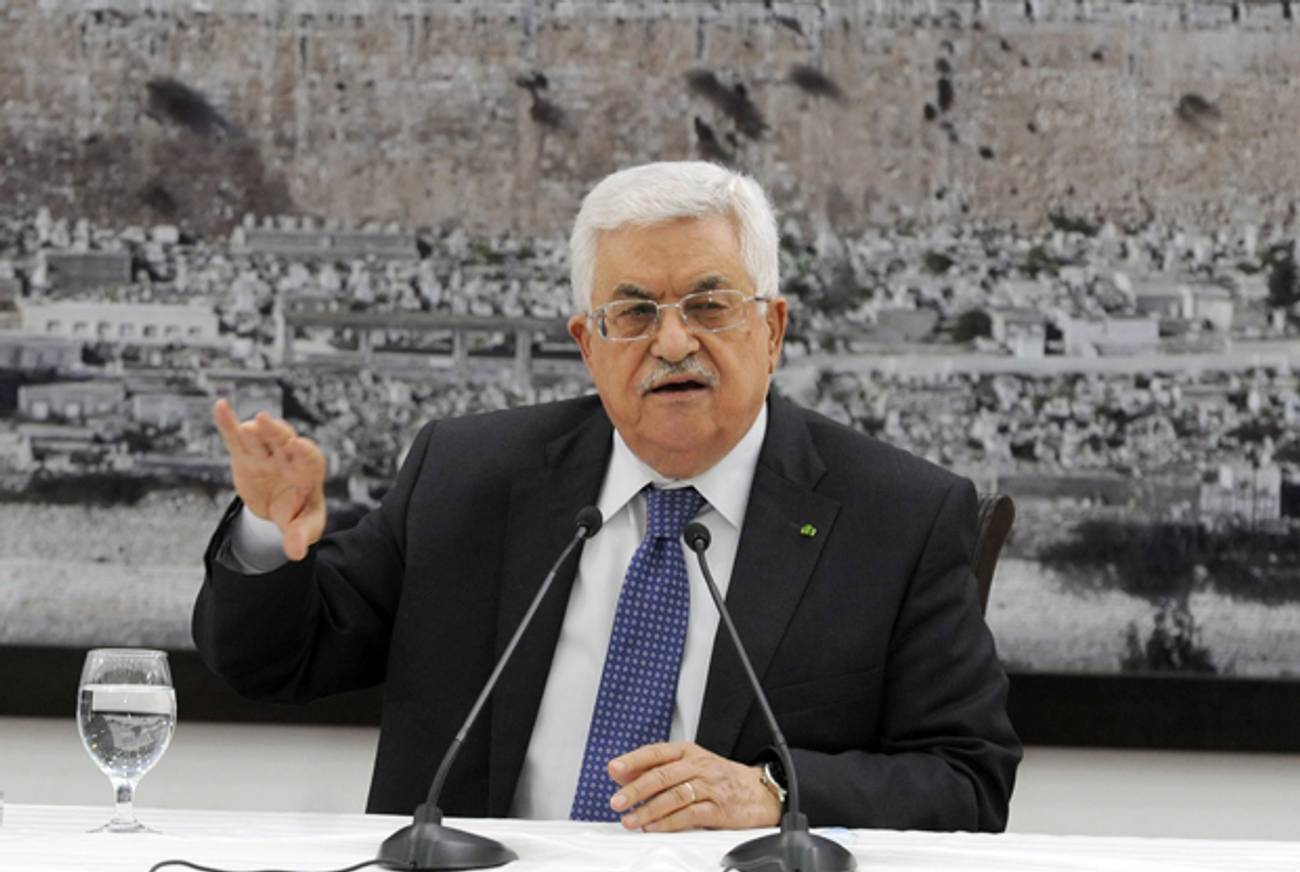Abbas’s Choice
How reconciliation with Hamas reveals the PA boss’s true intentions




Meeting with Israeli reporters in Ramallah yesterday, Palestinian president Mahmoud Abbas announced that the Palestinian Liberation Organization, which controls the West Bank, will end its seven-year feud with Hamas and form a unity government within five weeks.
“There is no contradiction,” Abbas said, “between the [internal Palestinian] reconciliation and the peace process.”
Let’s focus on the specifics of this curious statement. According to Palestinian sources, while concrete details aren’t yet finalized, Hamas, under the terms of the pending agreement, would integrate its uniformed Gaza police into the Palestinian Authority’s security forces infrastructure, while simultaneously maintaining its Izz ad-Din al-Qassam Brigades, the organization’s paramilitary arm, independently. And as the new Palestinian recoupling will not necessitate Hamas’s abandonment of its stated goal—the destruction of the state of Israel—that would mean that, come summer, some representatives of the Palestinian government would likely continue to negotiate with Israel while others would almost certainly launch their rockets at Israeli civilians.
And since one of Abbas’s key demands to resume peace talks with the Jewish state is immediate discussion of permanent borders, he would have the pleasure of telling his Israeli counterparts that withdrawal from occupied territories would mean guaranteed peace, as his new coalition partners could vouch: since Israel unilaterally exited the Gaza Strip in 2005, Abbas’s new partners in power fired more than 8,000 rockets into Israel.
The Israeli reporters visiting his compound yesterday raised some of these concerns, but the Rais seemed unmoved. “We have factions and parties just like you,” he said. That is true. But when a faction or a party across the Green Line from Abbas’s office espouses deeply undemocratic principles, when it advocates, let alone perpetrates, assaults on innocent civilians, when it incites violence and hatred, it is forcefully removed from the political process, not invited to govern. According to Amendment No. 9 to Basic Law: The Knesset, “a candidates’ list shall not participate in elections to the Knesset if its objects or actions, expressly or by implication,” include either the negation of the democratic character of the state or incitement to racism. In 1988, this bit of legislation was used to bar Meir Kahane’s Kach Party from seeking seats in the parliament, and in 1994 the Israeli government defined Kach as a terrorist organization.
Abbas is nowhere as scrupulous in protecting the liberties of his constituents. Forget about the peace talks for a moment: if you’re wondering what the future Palestinian state might look like, just glance at the sterling human rights record of his new partners. From extensive torture and warrantless arrests to oppressing women, gays, and Christians, Hamas is not only a terrorist organization but also the architects of a profoundly oppressive, benighted regime. Forced to choose between peace and rockets, between freedom and torture, between hope and hate, Abbas has made his choice.
Liel Leibovitz is editor-at-large for Tablet Magazine and a host of its weekly culture podcast Unorthodox and daily Talmud podcast Take One. He is the editor of Zionism: The Tablet Guide.